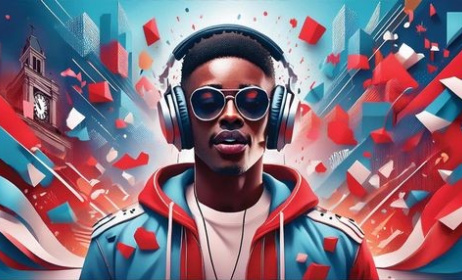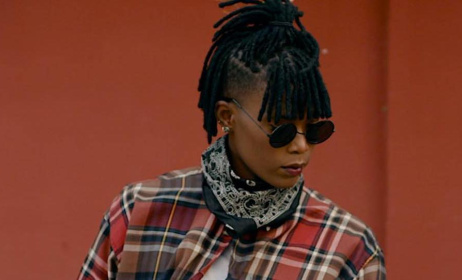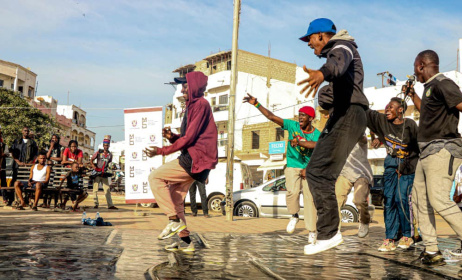Rosa Ree: A rose among the thorns
Rosa Ree is one of Africa’s fast-rising women in hip hop. With a few singles to her name and an album that is slated to be released this year, the rapper is a force that contends with her male counterparts in the genre.
 Rosa Ree turns to the mic when someone makes her mad. Photo: Music In Africa
Rosa Ree turns to the mic when someone makes her mad. Photo: Music In Africa
Rosa Ree, whose name derives from Rosary Robert, was born in Tanzania. She later moved to Kenya to study. Her break in the music industry came in 2015 when she was signed to The Industry, a record label owned by Nahreel from the music group Navy Kenzo.
Rosa Ree is a nifty artists who can rap with tenacity. She has the energetic delivery of the New York hip hop school and the laid-back gangster rap technique of the West Coast. She has recorded songs with artists such as South African rapper Emtee and Tanzanian emcee Bil Nass.
On her recent trip to South Africa, Music In Africa caught up with the singer to speak about the rap game, women in hip hop and her progress in the music industry.
MUSIC IN AFRICA: What is your experience being a female hip hop artist in Tanzania?
ROSA REE: In the society I come from women are not believed to be able to do hip hop, so the number of female hip hop artists is very low. We’re trying do something of a revolution because we want to make people believe that females can play a game that is dominated by males. People have been taught that males can do it only because it’s hardcore. What we're trying to do is to bring change into society so that people can believe in female rappers.
Within the space of a year you switched record labels. Were you not happy with the first one?
It’s actually all about speed. The label I was with in the beginning was a nice label. Maximillian, the owner of the label, actually helped me realise my ability to rap. Because I thought I could sing, he told me I should rap more and put more energy in rap. So I put in more work.
There’s always a time for everything and nothing lasts forever, so I met another guy called Nahreel from Navy Kenzo. He runs The Industry. He told me that he loves what I do and he wanted to sign me. It just sounded like a good opportunity at the time.
What are the differences between South African and Tanzanian hip hop?
I can’t say there’s a kind of hip hop that Tanzanians do or a kind that South Africans do. It’s really a culture, where if you want to do hip hop you really have to go with it. Hip hop is a genre, it’s not like a vernac. There’s no Tanzanian or American type of hip hop. I feel like it’s a general thing.
I think people appreciate hip hop more in South Africa, because where I come from there are other genres like bongo flava, and people like that more. But it doesn’t mean people don’t listen. Here I found that there are other genres like gqom.
How was it working with Emtee?
It was awesome. Emtee is one of the artists I used to listen to a lot. He expresses his life through his music and that is one thing that inspired me. And I wanted to have that experience. It was amazing.
What inspires you to write music?
Generally whatever's going on in my life. For instance the first song I did, ‘One Time’, it was harsh and aggressive and angry, because people were telling me that I couldn't do hip hop as a woman. In the song I say, 'Do not look down on a woman because she’s woman'. To me it’s generally the emotions that I feel at that time.
When I think about what I want to do... I want to grow because to me it’s not really about collaborations, glitz, glamor or fame. It’s all in the circle of my life. I want to grow and be a better person and a better goddess of rap. I want to grow in every aspect.
What would you be doing if you were not rapping?
If I wasn’t rapping I’d be a doctor.
























Commentaires
s'identifier or register to post comments